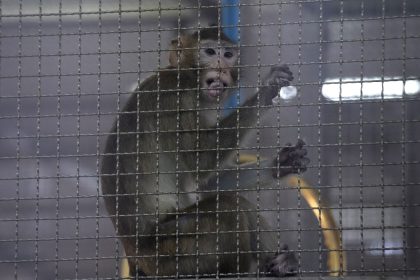Senate Wants More Oversight of Dangerous Biological Research

WASHINGTON — Scientists revived suspicions Wednesday that COVID-19 escaped from a Chinese lab during a Senate hearing where lawmakers discussed methods for preventing additional pandemics.
Their main concern was “gain-of-function” methods that biochemists discovered about 20 years ago. Gain-of-function refers to medical research that alters the genetic structure of organisms to enhance their biological activity.
The scientists who testified at the Senate Homeland Security and Governmental Affairs Committee hearing described it as inexpensive and potentially more lethal than any nuclear bomb.
“It’s just hard to think why you would ever want to do this when you consider the misuse potential,” said Kevin M. Esvelt, a Massachusetts Institute of Technology assistant professor of media arts and sciences.
Much of the skepticism about Chinese assertions COVID-19 originated from human contact with sick bats focuses on genetic mutations in the virus that some scientists say could not be explained as a natural phenomenon.
“As soon as you make a change that does not occur in nature, then it becomes dangerous,” Esvelt said.
The Wuhan Institute of Virology is one of the world’s leading organizations for gain-of-function research. COVID-19 is known to have started in Wuhan, China.
“These are asymmetric tools of mass death,” Esvelt said about gain-of-function techniques.
Other gain-of-function research has been performed at American universities under National Institutes of Health grants, usually with a goal of disease prevention and cures. Typically, the researchers study strains of influenza and severe acute respiratory syndrome.
A committee within the NIH holds primary responsibility for determining whether the projects are worthwhile and safe.
Sen. Rand Paul, R-Ky., who chaired the Homeland Security Committee hearing Wednesday, said more than a million American deaths from COVID-19 show better oversight of gain-of-function is needed.
“I think it was from a lab leak,” Paul said about the virus.
He recommended that Congress develop legislation that would set up a more robust method for reviewing any projects authorized for gain-of-function research. The current system lacks transparency and is administered by the same people participating in the research, Paul said.
“We want better oversight of this,” he said.
Sen. Ron Johnson, R-Wis., asked about a chain of events leading to the COVID-19 pandemic that some scientists said cast doubt on Chinese assertions the virus escaped from an open-air market in November or December 2019 where bats were sold for meat.
The events included the fact the Wuhan Institute of Virology’s database for its gain-of-function research was taken offline at 2 a.m. on Sept. 12, 2019. In addition, genetic material that mimicked the kinds of genes found in COVID-19 was being used in research at the lab but some scientific investigators said they were denied complete access to the evidence.
“Obviously, mum’s the word,” Johnson said.
He also questioned the integrity of scientists who do gain-of-function research for the easy access to grants and publications it offers.
“I just find that sick,” Johnson said.
Tom can be reached at [email protected] and @TomRamstack























